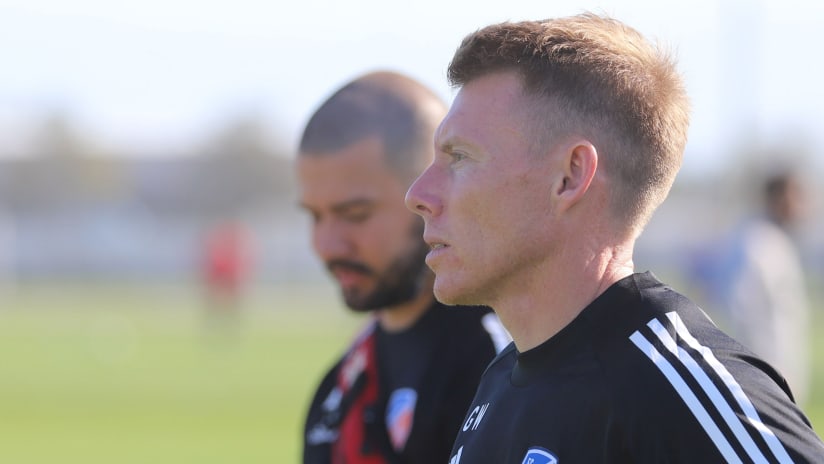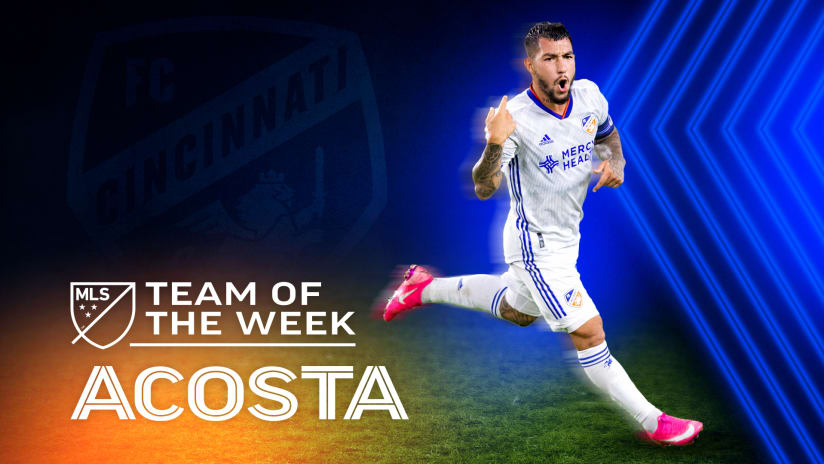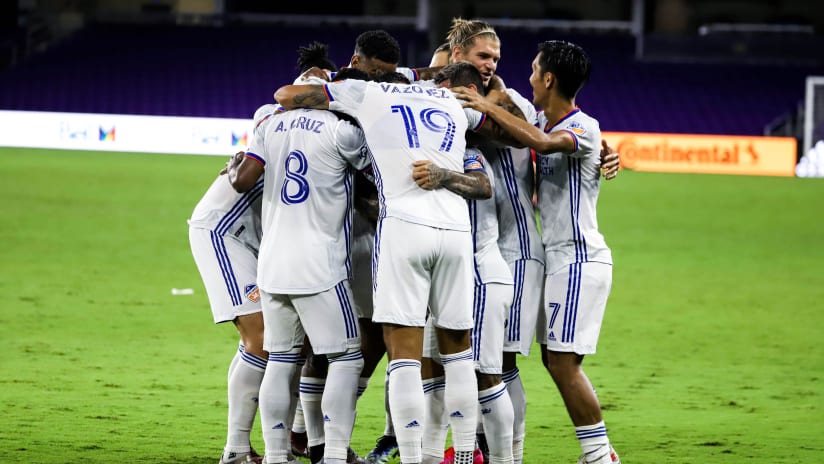This past Monday, Gary Walker was supposed to be at Stamford Bridge in London to speak at Kitman Lab’s 2020 UK Performance Summit. He was going to talk about how he was using Kitman to help FC Cincinnati’s communication and performance.
That event got postponed, of course, and now Walker, FCC’s director of sports performance, wonders when he’ll be able to see his players again after the MLS season was suspended, too.
“This is something that nobody’s experienced before,” Walker said Tuesday during a conference call. “From my perspective … it’s a difficult period. We’re only eight, nine weeks into the season and then the season gets suspended. So, that produces a lot of challenges as a staff.”
The last time there was a major stoppage – this past offseason – Walker and strength and conditioning coach Austin Berry literally planned for months how they’d keep players healthy and in shape before the 2020 preseason started begin in late January.
“My aim is to make sure the players are physically capable of executing the technical and tactical requirements of the head coach,” Walker said last December.
So, how does Walker do that when he doesn’t know when FC Cincinnati will train again or when the regular season will resume?
These are just some of the challenges that MLS coaching and technical staffs are facing amidst the current COVID-19 pandemic.
How FCC are keeping in contact with the players
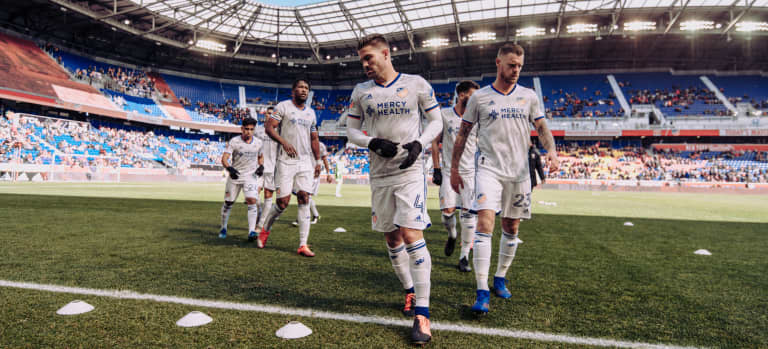
Photo by Michael Millay
The club began using Kitman Labs earlier this year as a way for players, coaches and staff to communicate and stay informed with updates.
Previously, notifications might include when lunch would be served at the Mercy Health Training Center, or what time should players arrive at the airport for a road trip. Now, updates inform players that they can’t report to MHTC anytime soon.
On Wednesday morning, MLS announced a training moratorium that runs through April 3. Until then – at the earliest – Walker has to come up with individualized workouts that maintain fitness while also allowing social distancing and general health and safety.
He said he’s keeping in contact with every player daily, via Kitman or FaceTime, to provide workouts, answer questions or simply to keep in touch with people he’s used to seeing every day.
Working through challenges
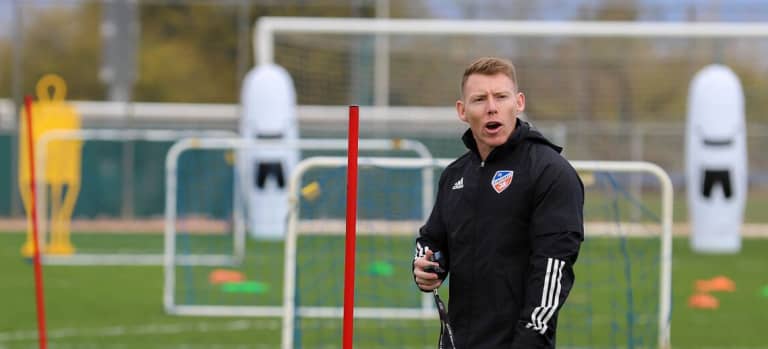
Like Walker said, the is unlike anything anyone’s experienced before.
For example: players normally eat a pre-training and post-training meal at MHTC that’s loaded with nutritious food to help players recover. With MHTC closed, that means players eat on their own. Some players have asked what should be in their diet; others have asked what to eat if they’re unable to get certain meats or proteins at grocery stores.
“It’s trying to help educate the player about making the right choices and the sensible choices,” Walker said.
As for exercising and staying healthy, he said he’s currently suggesting workouts that build off the training the players endured during the preseason and first three weeks of the regular season.
“It wouldn’t look too dissimilar to what would happen in the end period of the offseason when players are preparing to comeback to training,” he said. “We would remove a lot of the things … that are sort of just building a base because they players already have a good base. We’re still looking to try and give them more high intensity running exercises.”
Walker said it’s vital that players don’t “detrain” too much, meaning they’d lose what they build up from team training sessions. From a health perspective, he said the players will likely need as many weeks as they’re off to recover to retain the training levels they were at before MLS suspended the season two weeks ago.
“We (understand) that might not be possible,” he said. “But I think if we’re talking about the health and safety of our players, that’s going to be very important, given that they’re going to have to play a large number of games in quite a short period of time.”

